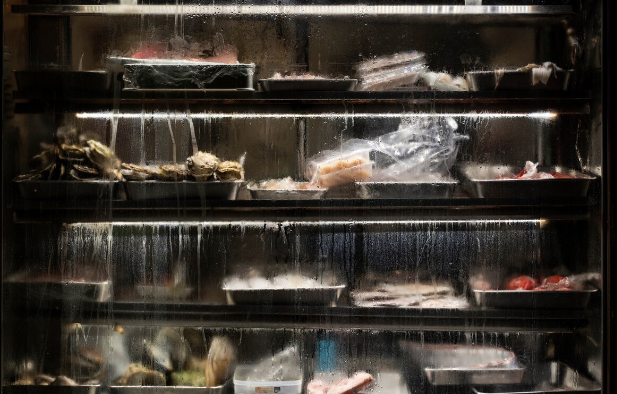Refrigeration plays a crucial role in the food industry, affecting everything from the freshness of ingredients to their taste and texture. The use of proper refrigeration equipment ensures that food items retain their original quality, helping restaurants and kitchens deliver dishes that delight their customers.
In this article, we’ll explore how refrigeration affects the taste and texture of various ingredients, the science behind these changes, and how investing in the right refrigeration equipment can enhance the quality of your culinary creations.
The Science Behind Refrigeration and Food Quality
Refrigeration slows down the biochemical processes that lead to spoilage, such as enzymatic reactions and microbial growth. By maintaining a lower temperature, refrigeration equipment helps preserve the natural flavors and textures of food, preventing them from deteriorating too quickly.
Here’s how it works:
- Slowing Enzymatic Activity: Enzymes present in food can cause ripening, browning, and spoilage. For instance, when fruits and vegetables are kept at room temperature, enzymes accelerate ripening, leading to loss of texture and flavor. Refrigeration slows down these enzymatic processes, preserving the food’s original state for longer periods.
- Inhibiting Microbial Growth: Bacteria, molds, and yeasts thrive in warm environments, leading to spoilage and off-flavors. Refrigeration inhibits the growth of these microorganisms, keeping food safe and fresh. By slowing down microbial activity, refrigeration helps maintain the integrity of the ingredients’ taste and texture.
- Moisture Retention: Proper refrigeration helps in retaining the moisture content of food, which is vital for maintaining texture. When foods lose moisture, they can become dry and lose their appeal. Refrigeration helps to lock in the moisture, keeping ingredients like fruits and vegetables crisp and juicy.
Impact of Refrigeration on Taste
The flavor profile of ingredients can be significantly affected by how they are stored. Proper refrigeration equipment helps preserve the natural flavors by preventing spoilage and off-flavors. Here’s how refrigeration impacts taste:
1. Preserving Natural Flavors
When ingredients are stored at the right temperature, their natural flavors are better preserved. For example, dairy products like milk and cheese retain their freshness and flavor longer when kept cool. Similarly, meats stored at the right temperature maintain their natural juices, ensuring that the flavor is not lost during cooking.
2. Preventing Off-Flavors
Off-flavors often develop when food spoils or becomes contaminated. Proper refrigeration helps prevent the growth of bacteria and molds that cause these undesirable tastes. For instance, fruits and vegetables stored improperly can develop a sour or fermented taste due to bacterial growth. By using appropriate refrigeration equipment, you can avoid these flavor changes and keep ingredients tasting as they should.
3. Flavor Maturation
Some foods, like cheese and cured meats, benefit from a controlled refrigeration environment to allow flavors to mature without spoiling. These foods develop complex flavors over time when stored at consistent temperatures. Proper refrigeration ensures that these flavors develop correctly, without the risk of spoilage or contamination.
Impact of Refrigeration on Texture
The texture of ingredients is just as important as their flavor, and improper storage can lead to significant changes in texture that affect the overall quality of dishes.
1. Maintaining Crispness
For ingredients like leafy greens and fresh vegetables, maintaining a crisp texture is crucial. Proper refrigeration equipment helps in keeping these ingredients crisp by maintaining the right humidity levels and preventing moisture loss. Without proper refrigeration, greens can become wilted, and vegetables can lose their crunch, compromising the texture of your dishes.
2. Preventing Sogginess
Refrigeration helps prevent the absorption of excess moisture that can make foods soggy. For example, refrigerated baked goods retain their texture better than those left at room temperature, which can become stale or overly moist. The right refrigeration setup helps keep baked goods firm and flavorful.
3. Retaining Juiciness
Meats and seafood require proper refrigeration to maintain their natural juiciness. When these ingredients are stored at lower temperatures, they retain their moisture, preventing them from drying out. This retention of moisture is essential for keeping meats tender and flavorful when cooked.
4. Avoiding Freezer Burn
Freezer burn can occur when food is not stored correctly in the freezer, leading to changes in texture and taste. While freezer burn doesn’t make food unsafe, it can make meats tough and vegetables mushy. High-quality refrigeration equipment with good sealing and proper temperature control can minimize freezer burn, keeping ingredients at their best.
Choosing the Right Refrigeration Equipment for Optimal Food Quality
To maintain the best taste and texture of your ingredients, it’s essential to choose the right refrigeration equipment tailored to your kitchen’s needs:
- Adjustable Temperature Settings: Different ingredients require different storage temperatures. Investing in refrigeration units with adjustable temperature settings allows you to create the optimal environment for each type of ingredient.
- Humidity Control: Some refrigeration units come with humidity control features that help maintain the right moisture level for specific ingredients, ensuring they don’t dry out or become overly moist.
- Efficient Air Circulation: Proper air circulation within the refrigeration unit ensures that all parts of the storage space maintain consistent temperatures, preventing hot or cold spots that can lead to uneven texture and flavor changes.
- Energy Efficiency: Choose energy-efficient models that provide consistent cooling while saving on energy costs. Reliable energy-efficient units maintain the right temperature without frequent fluctuations that can impact food quality.
- Regular Maintenance: Ensure your refrigeration equipment is regularly maintained to keep it functioning optimally. Regular maintenance helps prevent temperature fluctuations and ensures your equipment lasts longer.
Conclusion
Proper refrigeration is essential for maintaining the taste and texture of ingredients in any kitchen. By investing in the right refrigeration equipment and understanding its impact on food quality, you can ensure that your ingredients retain their natural flavors and textures, leading to better culinary results. Whether you’re a restaurant, a catering service, or any food establishment, the right refrigeration solutions are key to delivering high-quality dishes that satisfy your customers.




